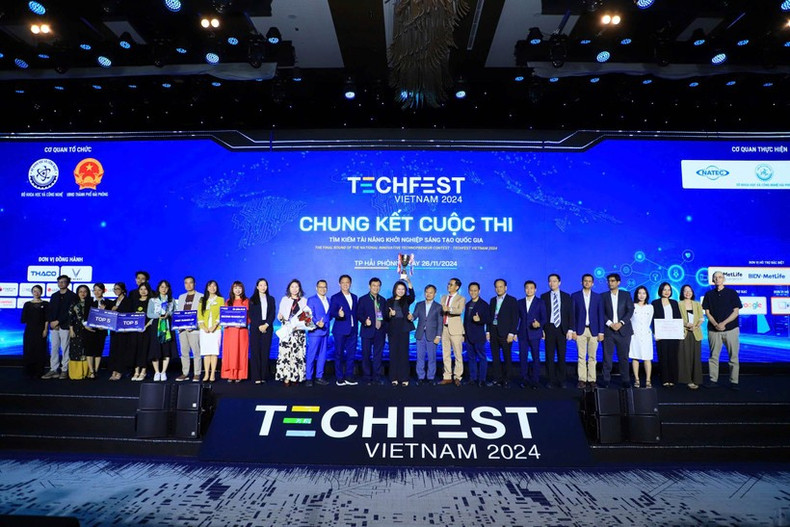The rise of green start-ups
With business models centred on sustainable products, services, and solutions, green start-ups promote environmentally friendly growth while directly influencing the economy’s total factor productivity (TFP).
Currently, TFP contributes approximately 45% to GDP growth, falling short of the threshold required for sustainable development. The national objective is to raise this contribution to over 55%, and green start-ups play an instrumental role in achieving it.
Although Viet Nam’s green start-up ecosystem remains in its infancy, the innovation landscape is expanding rapidly. According to the Ministry of Science and Technology, Viet Nam is home to more than 4,000 innovative start-ups, including two “unicorns” valued at over USD 1 billion, 11 businesses worth over USD 100 million, and a network of over 1,400 support organisations.
It is estimated that 200–300 of these focus on green transformation sectors such as renewable energy, sustainable agriculture, environmental technology, and the circular economy—representing just 5–7% of start-ups nationwide.
Recent innovation start-up competitions have awarded many solutions related to sustainable initiatives and environmental protection, with a focus on fields such as renewable energy technology, waste management and treatment, eco-friendly products, and sustainable agriculture.
Viet Nam is home to more than 4,000 innovative start-ups, including two “unicorns” valued at over USD 1 billion, 11 businesses worth over USD 100 million, and a network of over 1,400 support organisations.
At the 2024 National Innovative Start-Up Talent Search Competition (TECHFEST Viet Nam), the championship went to the Yeast Era, a project that transforms natural materials into high-quality protein using advanced technology. This innovation not only conserves water and reduces CO₂ and methane emissions, but also promotes immune and digestive health—offering a sustainable alternative to conventional protein sources.
The team is pioneering probiotic protein production by combining modern biotechnology with natural ingredients. Their innovative solution provides immune and digestive health benefits while offering an environmentally sustainable alternative to traditional protein sources.
This demonstrates that when start-ups focus on developing green solutions, they not only create innovative products but also have a positive impact on the environment and the community.
There is also growing interest from international investors, highlighting the strong potential of green start-ups.
According to a survey by international auditing firm PwC, 75% of investors confirm that they consider environmental, social and governance (ESG) factors in their investment decisions.

Policy shifts and global opportunities for sustainable growth
Governments, development funds, and international organisations are increasingly backing green start-ups, creating pathways for expansion beyond national borders. This creates opportunities for green businesses not just to develop in Viet Nam but also to expand internationally.
At the 2025 Partnering for Green Growth and the Global Goals 2030 Summit (PG4), six Vietnamese green-transition start-ups were sponsored by the P4G Forum to scale production and enter global markets.
Experts note that while green transformation presents challenges for traditional businesses, it also offers rich opportunities for start-ups prepared to innovate. Resolution 57/NQ-TW, issued on 22 December 2024 by the Politburo, emphasises the importance of advanced technology, science-based entrepreneurship, and sustainable socio-economic development.
Strategic national policies and programmes are needed to nurture this green start-up ecosystem, providing support that popularises eco-technologies and builds momentum for innovation.
To foster a thriving green economy, it is vital to define the role of green start-ups and science and technology enterprises clearly. These trailblasers must guide small and medium-sized enterprises through the transition to sustainable production models, while exporting green technologies and enhancing Viet Nam’s global profile in innovation and environmental stewardship.
Strategic national policies and programmes are needed to nurture this green start-up ecosystem, providing support that popularises eco-technologies and builds momentum for innovation.
This dual approach—advancing economic growth through digital transformation while securing green development—is essential for a sustainable future.
















